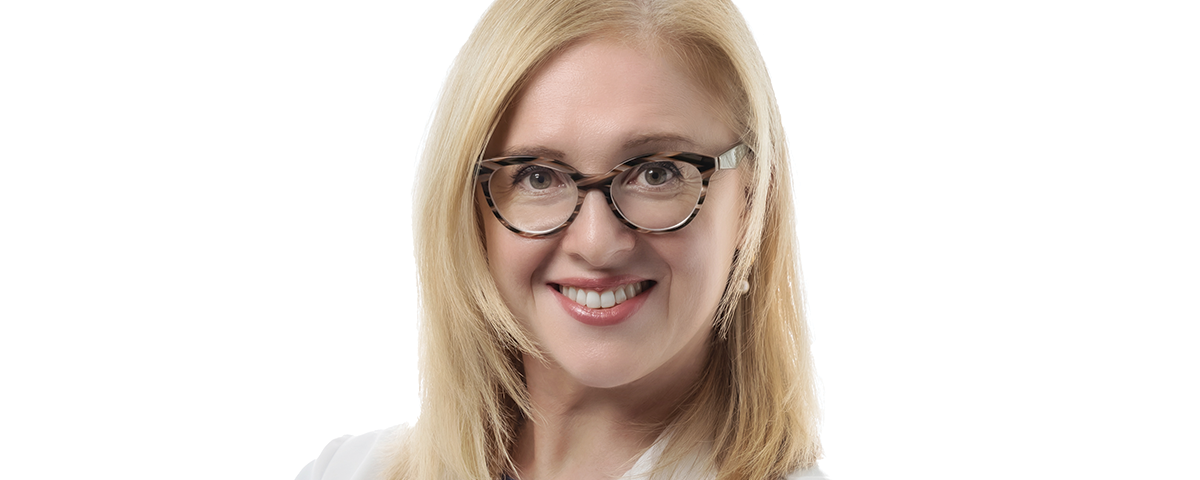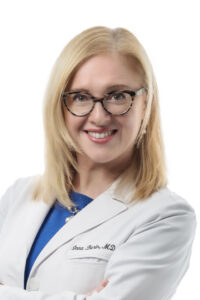- Turning Big Dreams into Little RealitiesCall to Schedule (201) 666-4200

Your Little Realities: Nancy’s Story
June 2, 2016
Frequently Asked Questions
February 13, 2023Q&A With Dr. Inna Berin
Q: What made you want to be a reproductive endocrinologist?
A: When I was in my OB/GYN residency, I encountered many patients looking for contraception. We were able to discuss different options and prescribe the appropriate therapy quite easily. However, there were others who came in with a different concern – they could not conceive. I remember hearing the disappointment in their words – using contraception for so many years, and yet not being able to conceive when she and her partner were ready to start a family. They felt like they were “less than” because they couldn’t conceive, and while their friends were celebrating baby showers and having babies, they were facing the silent and isolating disappointment of having a period every month and having to pick themselves up and try again and again. It was especially difficult when all the well-wishers would ask them why they aren’t having kids yet, or telling them that their “clock was ticking”, or just to “relax and it will happen” if they shared they were having difficulty. They were scared, vulnerable, and sad. Infertility had the power to affect all aspects of their lives, their health, and their relationships. I realized that this was my calling – to help these patients to build their families, and do so in a warm, encouraging and reassuring manner so they can have the best outcome possible.
Q: What do you think is the most interesting technology/treatment that fertility has to offer?
A: Right now, IVF with Pre-Implantation Genetic Testing (PGT) is the most effective technology in order to achieve a pregnancy quickly and with the least chance of miscarriage. IVF (In Vitro Fertilization) involves stimulating a woman’s ovaries with medications to encourage the development of multiple eggs, retrieving the eggs, and then combining with sperm. Once fertilization occurs, the embryos are observed over the course of 5-7 days, and many embryos develop to the “blastocyst” stage. At that point several cells of the trophectoderm layer of the embryo can get sampled, and a genetic result can be obtained. Over the years, PGT has evolved, and it’s incredible to me that such a minute portion of the embryo’s DNA can be safely and effectively used to determine if the chromosomes of the embryo are normal. I believe this has revolutionized the field of IVF, and allowed us to choose the best embryo right away, maximizing success rate of embryo transfer. At the same time, it allowed us to put 1 embryo in at a time, minimizing the rates of multiple pregnancies. We strongly encourage all patients to have a single embryo transfer if the embryo was genetically tested, and are confident in the high rates of achieving a singleton pregnancy with this safe approach.
Q: What makes the Fertility Institute of NJ & NY unique?
A: We stand out because of our individualized approach to each patient and couple, taking care of their medical and emotional needs with great care and compassion. Our providers are experts in all aspects of the fertility journey our patients experience, utilizing advanced diagnostic tools and comprehensive treatment options. Our technology in and out of the embryology lab is the latest and the most cutting edge, allowing us to offer highly effective and tailored treatments. Our staff and embryologists are extremely skilled and attentive, and no detail is overlooked. Our patients become our family, and everyone gets to know each other. The patient is not just a number; our staff knows each and every patient by name and face, they are recognized and guided during their entire experience with us, starting from their first appointment, to their blood draws and ultrasounds, to their procedures, and finally their preganancy.
Q: What is your favorite part of your job as a fertility specialist?
A: Of course what I want to say is “when the patient has a healthy pregnancy”. But actually, my favorite part is the initial consultation. The patient is coming to me after having a lot of uncertainty and frustration already. They have typically tried the natural methods already, as well as alternative therapies, or even come from another fertility clinic where they were not successful. Sometimes they come after cancelling and rescheduling their appointment a few times because of how emotionally difficult this step is for them. I recognize all that. I want to provide the reassurance and the guidance to the patient right away and to take their problems and put them on my shoulders. I believe this makes the patient feel better and somehow even relieved, knowing that they will be given the right advice and expert treatment, in a warm and supportive environment.
Q: What is the best memory you’ve had at the Fertility Specialist of NJ & NY so far?
A: I’ve had many patients with excellent chance to conceive, but I’ve also had my share of patients who have had a lot of challenges with this process. Some patients stand out because of how they were able to beat the odds, with positive attitude and perseverance. My favorite example was a patient whose prognosis was not great, but she stayed optimistic and went through the process of IVF. Despite having only 2 eggs during her egg retrieval, and despite being of advanced reproductive age, she was able to conceive and carry a healthy twin pregnancy.
Q: If you could offer one piece of advice to women trying to conceive, what would it be?
A: I would say to see their OB/GYN or fertility specialist early in the process. So many times, we have patients who have been trying for a year or even more, getting frustrated, getting older. When they finally get their evaluation, it turns out there are significant issues that could have been addressed earlier, and more effectively, if they sought help before. In addition, there is a significant adverse psychological impact on the woman and her partner, and frequently on the relationship of the couple, that could have been avoided. So my advice is not to delay seeking an evaluation. This doesn’t mean they will need treatment right away, but at least they will get reassurance they need, which is sometimes enough.
Q: If you could travel to one place in the world, where would it be and why?
A: I am a very spiritual person, and deeply believe in the mind/body connection. I also practice yoga, and try to stay present and have gratitude throughout the day. I would love to travel to the mountains of India, where they say the energy is palpable, and the person’s spiritual connection grows deeper. I believe this impacts my fertility practice style as well, as I try to take care of all the aspects of the patient’s medical and emotional well-being.




